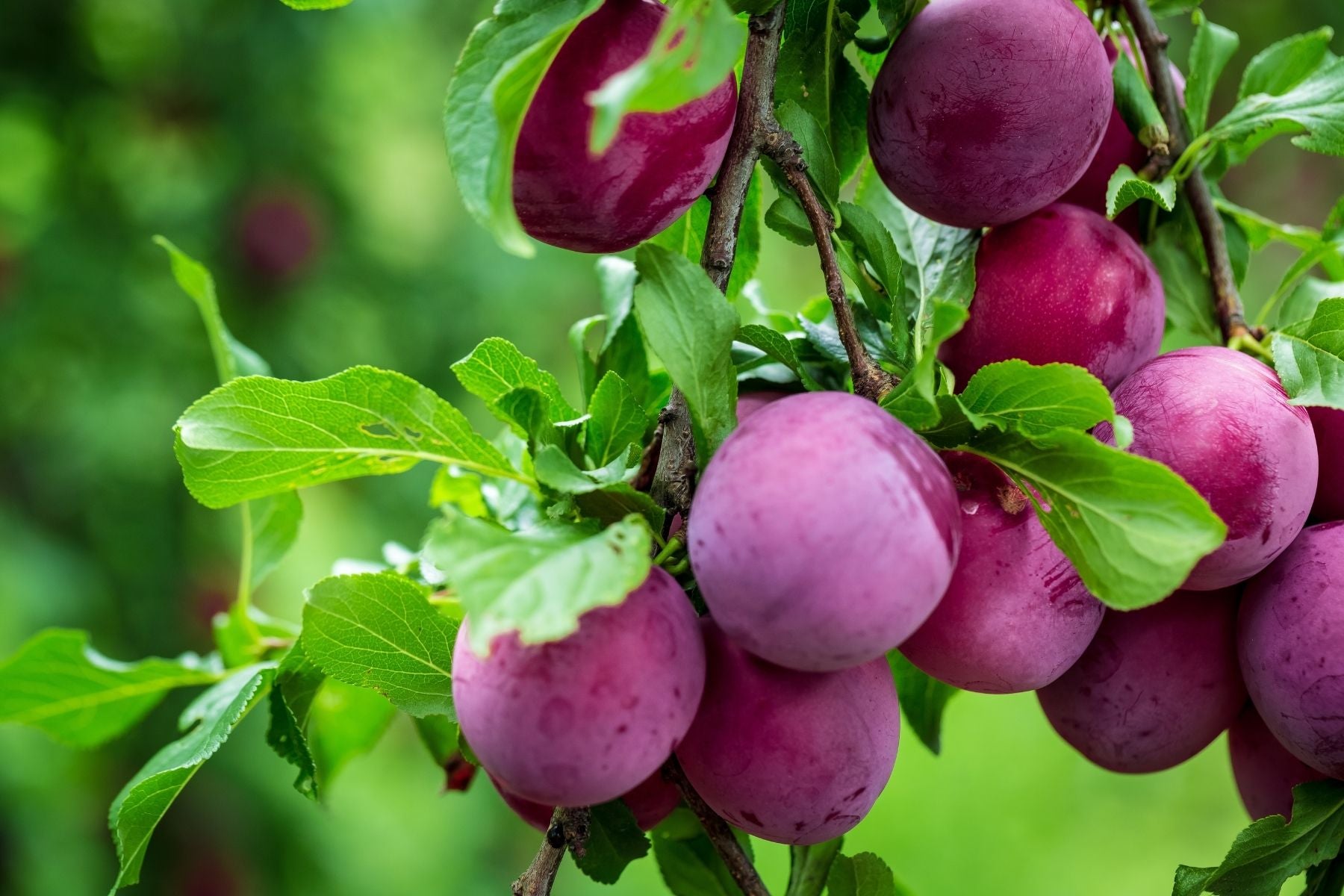Growing a fruit tree in one’s own yard can seem intimidating to people who have never considered it before. Fruit trees need constant attention and care, don’t they? The truth is that a lot of fruit trees are relatively easy to maintain and harvest from. However, many people fall into the trap of buying a tree of their favorite fruit right away without first understanding the demands the tree might have in order to flower and fruit properly.
Nothing is quite like picking fresh fruit right from the tree in your own yard. That’s why we want as many people as possible to be able to experience that joy. For those of you who have never cared for a fruit tree before, we made this guide on the top five easy-to-grow fruit trees for beginners to give you some ideas on good places to start. Once you have a little more experience under your belt, you can move on to other trees that may need more vigilance. To start, though, these trees are better than the rest for many different reasons.
First, we’ll go into the qualities that make a tree good for a beginner so that you can see the different factors you should consider before buying.
What Makes a Fruit Tree Good for Beginners?
What it really comes down to is how much attention you need to give your tree as it grows. The less you need to constantly check in on your tree’s health, the better of an option it makes for a beginner tree owner. Here are some of the qualities that make a fruit tree more ideal for an amateur.
Low Maintenance
Obviously, a tree that will require your full attention on most days isn’t going to be a great place to start. A fruit tree that needs very frequent pruning and trimming or more water than average will take more of your time and therefore be more difficult to tend to. Unless you plan on making tree-tending your next and biggest hobby, your best bet is to stick to a fruit tree that doesn’t require your attention every single day.
Resistance to Disease and Pests
No tree of any kind is fully immune to diseases or pest infestations. However, a number of fruit trees are far more susceptible to plant diseases or attract more pests that harm them. If you’re just starting out, you’ll want a fruit tree that can stand up to the diseases it might run into in your area. Fixing a tree that already has a disease or a pest infestation isn’t always a simple process, and it can be an expensive one, too. Search for a hardier fruit tree that won’t start to rot at the first sign of disease.
Favorable Climate
Some fruits simply grow better in warmer or colder climates than others. It might be incredible to have something such as your own mango or pineapple tree in your backyard, but if you live in a colder climate or a place with harsh winters, that simply won’t be a reality. Learning about your local climate is one of the first steps of deciding on a good fruit tree for your property.
Easiest Trees To Grow for Beginners
Now that you have a better idea about what makes a fruit tree good for an amateur, we can take a look at our top five easy-to-grow fruit trees for beginners. These are generally some of the easiest fruit trees to grow yourself.
Pear Trees
Many people consider pear trees to be the easiest fruit tree to grow on your own. Specifically, Asian pear tree varieties are well-known as the perfect fruit trees for beginners because of how simple they are to take care of and how much fruit they produce with little extra effort. For the most part, pear trees are also very resistant to a lot of diseases with which other fruit trees struggle. Fire blight is still a concern, but protecting a pear tree from it doesn’t take much effort. A few pear varieties are even self fertile, meaning you don’t need more than one tree for it to pollinate and bear fruit.
Plum Trees
You can find plum trees in a variety of different climates, which is one of the best parts of buying them for yourself. Many common European varieties of plums are self fertile, but you can also choose an American variety. It’ll need cross-pollination, but it will be even hardier than a European variety.
If you plan to buy plum trees online, make sure you transplant them into soil that can easily drain after a heavy rain. The only thing you really need to watch for is that the soil doesn’t get waterlogged.
Cherry Trees
You have a choice when it comes to picking a cherry tree for your own property: sweet cherries or sour cherries. Both are fantastic, but choosing the right one will depend on how you want to eat them. Sweet cherries are for eating right away, and sour cherries are for baking with. Many cherry varieties are self fertile, allowing you to stick with just one tree to start off with, but the fruit yields will be better if you can set up cross-pollination with another cherry tree.
Common Fig Trees
Fig trees are very resistant to disease, and they can also thrive in many different climates—even hot and arid ones. Most common fig trees are self pollinating, which lets you start off small to get a feel for growing them. They also grow very quickly compared to other trees, which is a good thing if you don’t have the patience to wait for a tree that needs to age for a long time before bearing fruit.
Apple Trees
The many different varieties of apples that are available to you give you a lot of options based on where you live and what you want to do with them. A few apple varieties, such as the Golden Delicious, are self fertile, but several other varieties will need cross-pollination. Apple trees tend to grow broader than they do tall, which makes harvesting from them much simpler.
Plant Me Green wants you to get the most out of your fruit trees, whether you’re brand new to owning them or an expert already. Our store has a huge selection of fruit tree varieties, so you’re sure to find the perfect tree for your yard if you check it out.




Comments
THANK FOR THE POSTING OF THE FRUET TREE MAINTNENCE